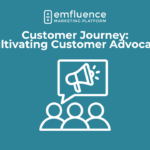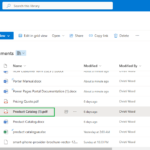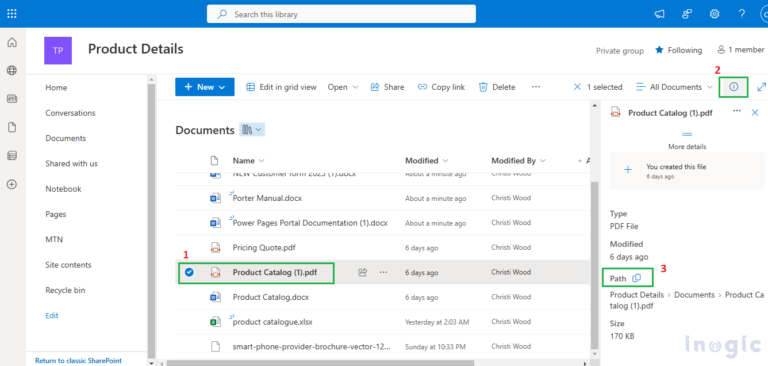Dynamics 365 Solution Architect Kayla Rohde was featured on a recent episode of the Digestible Dynamics Podcast. This episode offers actionable advice for leveraging Dynamics 365 to its fullest potential.
Dynamics 365 stands out for its intuitive design, ease of configuration, and rapid deployment capabilities. Despite these strengths, achieving maximum effectiveness often requires tailoring the system to match unique business processes and workflows. Success with Dynamics 365 involves recognizing and addressing these challenges effectively, ensuring the platform not only fits the organization’s needs but also supports seamless user adoption.
Check out the full podcast!
Get the full story by listening to Kayla Rohde share implementation best practices.
Listen Now
Best Practices for Dynamics 365 Implementation
Kayla Rohde shares invaluable implementation strategies, emphasizing critical areas for attention:
Understanding Business Needs: A successful Dynamics 365 implementation starts with a deep dive into the specific needs and processes of the business. This involves working closely with stakeholders to map out essential workflows and identify how the platform can best support these processes. Customizing Dynamics 365 to align with organizational goals ensures that the system enhances efficiency and meets the unique demands of the business.
User Adoption: The ultimate effectiveness of Dynamics 365 hinges on its acceptance and use by the end-users. To this end, investing in comprehensive training sessions and utilizing a “train the trainer” approach can be highly effective. By empowering a select group of users to become product champions, organizations can facilitate broader user adoption through peer-led training and support, ensuring the workforce is proficient and comfortable with the new system.
Change Management: Implementing a new ERP system like Dynamics 365 can be a significant change for any organization. Successfully managing this change requires clear communication of the benefits and objectives of the new system from top management down to the end-users. Engaging with all levels of the organization to ensure alignment of expectations and fostering a culture that embraces change are pivotal steps in minimizing resistance and enhancing the adoption process.
Overcoming Common User Adoption and Customization Challenges
Kayla Rohde addresses several challenges that organizations often face during the implementation of Dynamics 365:
Managing Expectations: It’s crucial to align stakeholder expectations with the implementation’s realities right from the start. This includes setting realistic timelines, understanding the scope of customization required, and preparing for the iterative nature of system deployment and refinement. Clear communication about what the system can deliver and how it aligns with business goals helps maintain enthusiasm and support throughout the project.
Customization vs. Out-of-the-Box: Dynamics 365 offers a wealth of out-of-the-box functionality that caters to a wide range of business processes. However, most organizations will find that some level of customization is necessary to fully meet their needs. Striking the right balance between using the existing capabilities of the platform and customizing it to fit specific requirements is key to maximizing the system’s value without overcomplicating the implementation.
Security and AI in Dynamics 365
The integration of security and AI into Dynamics 365 represents a pivotal advancement in how organizations manage their operations and safeguard their data. As Kayla Rohde discusses, these elements are crucial for modern businesses, where digital transformation drives efficiency but also presents new challenges in data protection and process optimization.
Balancing Security with Flexibility: Implementing Dynamics 365 requires a delicate balance between securing sensitive business data and providing employees with the flexibility to access the information and tools they need. This ensures that data is protected without hindering the seamless flow of information that empowers users to perform their tasks effectively.
Practical Implementation of Security and AI: Kayla highlights the importance of starting with the most restrictive permissions that are reasonable for the user’s role and gradually expanding their access based on real-world feedback and requirements. This way, you can ensure that important or sensitive data (such as the CEO’s emails or HR data) is kept on a need-to-know basis. A similar approach allows businesses to experiment with AI in a controlled environment. Microsoft Copilot provides reasonable safeguards to ensure safe use within the ERP/CRM application context.
Check Out the Podcast
Gain deeper insights into leveraging Dynamics 365 for your business by listening to the full episode of the Digestible Dynamics Podcast. Whether you’re looking to enhance your current implementation or are just beginning your Dynamics 365 journey, this episode is packed with expert advice to help you ensure a successful implementation. Don’t miss this opportunity to learn from seasoned professionals how to maximize your Dynamics 365 investment and drive your business forward.
By Western Computer | www.westerncomputer.com











